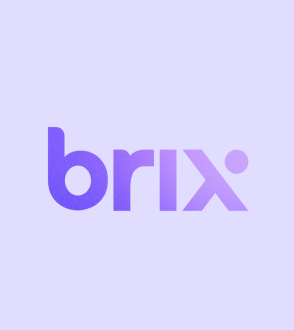Copyright International Business Times

The hiring process has long lagged behind other areas of business transformation. While many predominant industries have become more and more data-driven, recruiting often remains a mix of resumes, referrals, and intuition. From her years in finance and consulting, Carol Xie saw the consequences firsthand. Companies struggled not because they lacked strategy or funding, but because they couldn't connect the right people to the problems that mattered most. That realization led Carol to start Brix, an AI-powered recruiting platform built to help businesses hire with greater precision and speed. The company's goal is to understand why a role exists before deciding who should fill it. By linking hiring decisions directly to business goals, Brix helps organizations find candidates who can create a measurable impact. The Challenges Of Modern Recruiting Organizations have been steadily working with digital tools in almost every domain, yet recruiting has continued to remain analogue. Historically rooted in résumé sifting, interview spreadsheets, and human hunches, the hiring process often failed to keep pace with the speed of business change. A recent survey found that just 18% of talent leaders believe their function is fully aligned with business strategy. The cost of this mismatch can be severe. Failing to place people who can truly fit in with their role means delays in product launches, weaker performance, and rising turnover. The issue is not simply finding "any" candidate, but finding one whose experience, mindset, and track record can directly help solve the challenge the company's pursuing. Within this context, Carol Xie's early career offered a clear view of the problem. A former certified public accountant who worked at companies like TD Bank and Deloitte, she became witness to many corporate inefficiencies, which weren't due to poorly implemented business models or lack of capital — they were rooted in talent not aligned with purpose. Carol distilled this into a principle when she built her next venture: hiring must focus on outcome rather than a checkbox. "Many business problems are actually people problems," she once said, reflecting on her time in structured finance and consulting. The shift from auditing spreadsheets to directing start-ups sharpened her conviction that asking "Does this person actually solve the problem?" is more useful than "Does this person tick the boxes?" Brix: Redefining Hiring Through AI Brix is Carol's answer to this long-standing problem. The platform essentially acts as an end-to-end, fully automated recruiting system designed to improve how companies hire. The process begins when a company inputs its business challenge or uploads a role description. Rather than asking only what the company is hiring for, Brix starts by asking what outcome the hire is meant to achieve. From there, the platform searches across a global database of worldwide verified candidates, with data from verified sources. Once potential matches are found, Brix's AI agents get to work. The platform takes the company's needs and turns them into candidate attributes, both measurable, like skills and experience, as well as more subtle, context-driven indicators that would align with a company's specific goals. It then scans market data to show where the right talent exists and what competitors are hiring for. Finally, the platform pre-screens candidates, ranks them by relevance, and delivers a focused shortlist ready for interviews. This structure allows Brix to operate less like a résumé filter and more as an incorporated, collaborative strategist. As Carol puts it, "It's like giving every company a recruiter that understands its business as well as its leaders do." The system's effectiveness became clear soon after Brix joined HF0, a San Francisco accelerator known for early-stage, technical founders. Within its first three months, the team built a working prototype and began onboarding users. More than half the startups in HF0's 2025 cohort adopted the platform to hire their founding engineers and researchers—a strong indicator of product-market fit. That early traction translated into rapid growth. Within a year, Brix scaled to $5 million in revenue and established itself as one of the accelerator's most sought-after startups. Xie attributes this momentum to the platform's ability to treat recruiting not as an administrative function but as a measurable growth driver. Carol's Approach To Building Teams As co-founder of the company, Carol aims to reflect Brix's framework when it comes to running the company itself. She builds teams around evidence of execution rather than pedigree. "Focus on what they've done, not what they've studied," she says. For her, adaptability matters more than credentials. A well-known university or company name no longer signals ability in the way it once did. What distinguishes strong performers, she believes, is a curious, interested mindset and the willingness to pick up skills quickly. Carol applies the same thinking to leadership. "A-players are motivated, not managed," she says. In a small startup, she argues, one driven and capable person can often do the work of an entire team. That belief has shaped Brix's internal culture when it comes to hiring: roles are tested, fine-tuned, and revisited through constant feedback. Even candidate profiles are A/B tested to see what kinds of people drive the best results. Brix mirrors Carol Xie's view of how human expertise can benefit from technology without being replaced or superseded by it. "AI can process context at scale, but people still make the final call," she says. "Our goal is to give companies better data so those calls are faster, fairer, and more accurate." In that sense, Brix does more than streamline recruiting. It reframes hiring as a strategic benefit, one that determines how well a company can grow in the short and long term alike.



